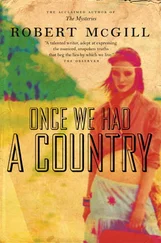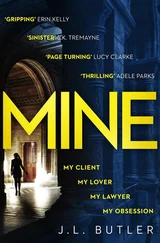Our boys were huddled to confer. They’d drawn a little crowd of locals across the street. At a quick glance, I saw them as basically the same neighborhood women who gathered around the priest yesterday. My glance was quick because I was intending to draw near the soldiers and listen in, get a quote or two just in case I did a little story, make an acquaintance or two I might glean a bit of information from someday. But I was suddenly having another one of those little afterimage experiences over a certain señorita: I thought I’d just seen her.
I looked back to the women. She was not there. I stepped into the center of the cobbled street. I could clearly see both ways, up and back down Calle de Vicario, and she was not walking off in either direction. I moved to the women. Some of the faces turned to me. Familiar from yesterday. Blank. They stayed shoulder to shoulder, though I was acting as if I intended to move past them. I kept coming, scanning the faces behind the ones in front and the faces behind those. She was not there. They knew I was coming through and finally, as if reluctantly, they parted.
To the left behind them was a door into a milliner’s; to the right, another opening, a passageway leading between shops, no doubt to a back courtyard and beyond. I could have plunged into either one and gone after her. But the vision I had of Luisa could have been my imagination. And if she was real, she was fleeing me again. And if she was the shooter, she might just add a gringo journalist to her list of rapacious priest and collaborating local official. I shuddered to think what body part of mine she’d shoot off.
I walked away, telling myself to get my story priorities straight. The sardonic sniper was marginal as war news, even if I could figure out a way to identify her and even if it turned out to be Luisa Morales, which I remained unconvinced of. The mystery German had the whiff of something important. But at least the directness of the sniper’s approach to collaborators led me now to a simple, similarly straightforward plan.
So I found myself on the doorstep of the German Consulate on Avenida Cinco de Mayo . The door quickly opened to my knock and revealed a blond young man in a field-gray Uhlan uniform with captain pips on his tunic shoulder boards. A cavalryman on consular attaché duty. He had steely blue eyes and a Kaiser Wilhelm mustache so pale it felt as if I were looking at the ghostly specter of a dark mustache that had died and refused to move on along to its eternal fate.
Living the early life I did with my mother, traveling with her always as she toured not only the United States but South America and Europe and beyond, I eventually learned good Spanish, passable French, and workable parts of other Romance languages, but I also picked up strange rudimentary bits — more sounds than words — from the Germanic and Slovak linguistic cousins of those others. My German was more double-talk than anything, more an acting talent, absorbed from all those years at the backs of theaters or in the wings and from hanging around dressing rooms and eating and drinking and sleeping in boardinghouses with actors and actresses and with the voices and dialects they put on. So I greeted this young man in Spanish, which I figured he would know, given his posting.
“ Bitte reinkommen, ” he said, stepping aside and motioning for me to come in even before I said what it was I wanted. I figured he hadn’t had the time or the imperial inclination to learn the local language. My little bit of German would make me sound like a madman. I didn’t know what our common ground might be, but I wasn’t intending to pretend to be anyone other than who I was, so I said in English, slowly pronouncing each word, “I am a newspaperman.”
“ Ach, so, ” he said, seeming to understand.
“I write for the Chicago Post-Express, ” I said.
He nodded.
I offered my hand. “I am Christopher Marlowe Cobb,” I said, the Germans I’d known in America loving the long elaborateness of names.
He took my hand and shook it, looking me steadily in the eyes.
Though he did not speak his own name in return, I continued to sense he knew what I was saying. Just in case, to establish German-friendly credentials, I said, “I also write for the Post-Express syndicate, which includes the Chicago Abendpost . They translate my. .”
The young man cut me off by speaking pretty damn good English. “I have some family in Milwaukee Avenue, one uncle and three Vetter . . Sorry. Cousins. I have three cousins also. They read the Illinois Staats-Zeitung . A more powerful newspaper.”
I was not sure what unsettled me most: his nearly perfect English, his relatives in Chicago, or his tightly clenching his right fist as he stressed the word “powerful.”
Perhaps the hand was the most unsettling, since as soon as it finished clenching, it shot out to me, demanding mine, which I offered and which he shook firmly with the announcement, “Captain Hans-Peter Krüger.” He let go of my hand, clicked his heels, and bowed ever so slightly at the waist.
“ Kapitän Krüger.” I bowed as well.
“ Bitte, ” he said, motioning to a pair of armchairs facing a dark wood desk to my left. And then instantly, as if correcting himself: “Please.”
I headed for a chair as he circled the desk. “Your uncle’s also probably a Cubs fan,” I said, the Cubs being the more powerful Chicago team. I didn’t expect him to hear the little bit of a needle I was giving him, or even understand the reference. Indeed, Herr Kapitän Krüger simply ignored the comment. Meanwhile, I was taking in as much of the place as I could without seeming to.
This front room was large and sparsely furnished, with everything made of the same carved mahogany. Out the far door was a sun-filled courtyard, which was, at the moment, empty.
I sat, though I angled myself slightly to keep the courtyard in the periphery of my vision. Krüger was already stiffly upright in his chair.
Behind him hung a large, framed, color lithograph of the Kaiser, beribboned, bemedaled, and with a massive eagle sitting on his helmet.
“Have you spent time in Chicago?” I asked.
“Spent?” I could see his brain sorting through his American idioms. “Ah. Yes. I am in Chicago for one year when I am a boy.”
“Good.”
“It was not the Fatherland,” he said. I got the feeling he had just clenched that right fist under the desk.
“Not yours,” I said.
“Not the Fatherland for my uncle and my aunt.”
“I understand,” I said, filling a brief pause.
“Not for my three cousins,” he said, not wanting to let any of his family escape his disapproval.
“They were your drei Vetter, ” I said.
I was aware that sometimes my reflex, low-grade sarcasm undercut my full effectiveness as a newspaperman. I should have wanted to smooth this guy’s Germanic feathers, not ruffle them. This remark could go either way. But almost at once he smiled. “Just so,” he said. “Just so.”
Captain Krüger was without irony.
We looked at each other a moment. I was still improvising here, as I often did when I was seeking a thing in someone’s head and I wasn’t quite sure even what category of thing it might be.
“How may I help you, Herr Cobb?” he asked.
“Your country is a good friend to Mexico. For my readers—Germans in America and all my other American readers as well — I would very much like to get the German point of view about my country’s invasion of Mexico.”
It is important to stress at this point that I am an American, through and through. I am a patriot. If I think Woodrow Wilson and William Jennings Bryan are a couple of ninnyhammers, they are our democratically elected and legally appointed ninnyhammers, respectively, and my right to think and say these things about them is part and parcel of my being a patriotic American. But I am also a reporter. I would not normally have been speaking loosely about the ninnyhammerness of my country’s leaders to a foreigner, especially a German, but there was a journalistic goal here that could eventually better inform my fellow patriots, which is also part of being an American, having the right to be well and openly and vigorously informed.
Читать дальше












